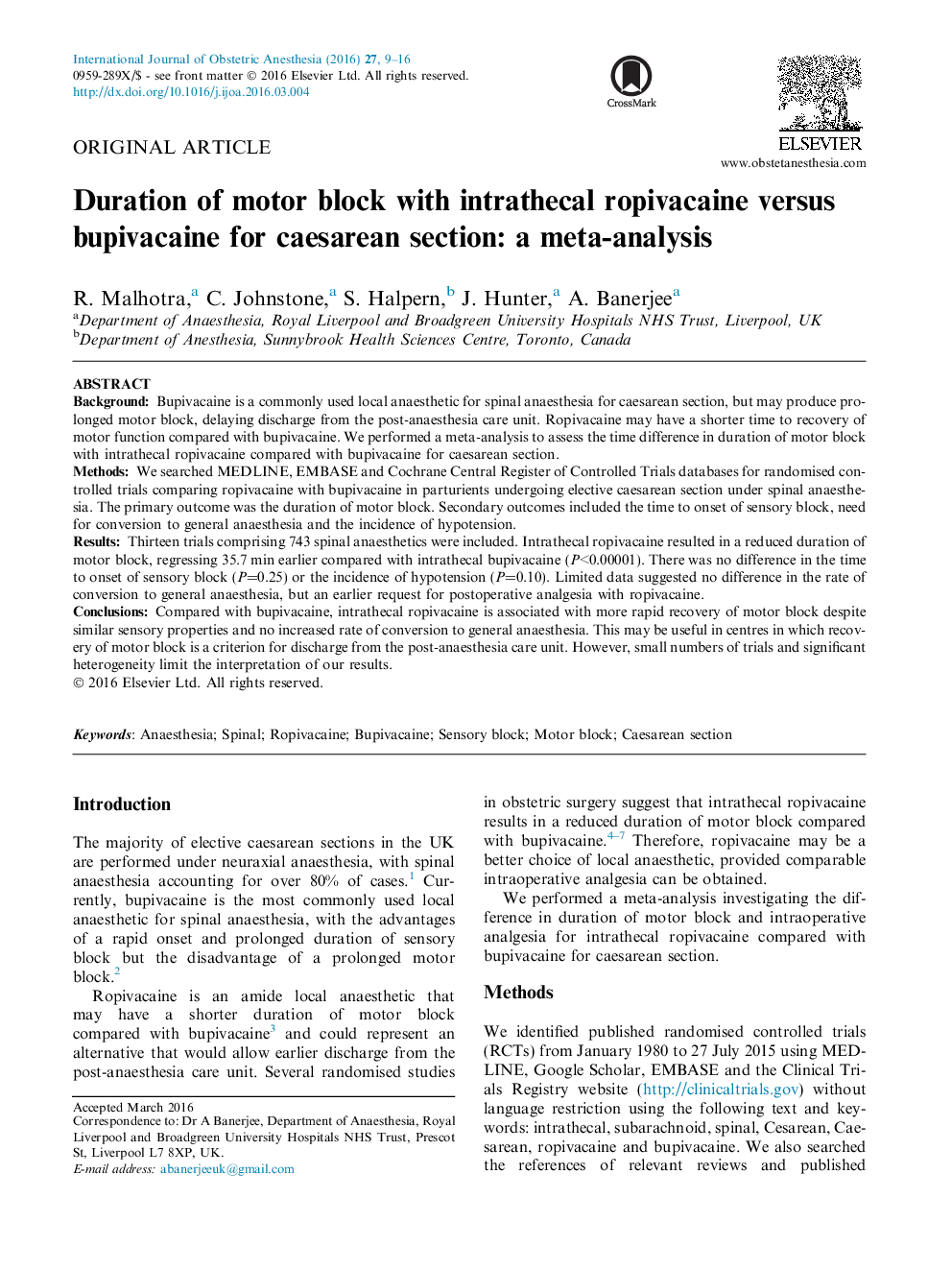| کد مقاله | کد نشریه | سال انتشار | مقاله انگلیسی | نسخه تمام متن |
|---|---|---|---|---|
| 2757404 | 1567508 | 2016 | 8 صفحه PDF | دانلود رایگان |
• We reviewed trials comparing ropivacaine and bupivacaine for caesarean section.
• Resolution of motor block was quicker with ropivacaine by 35 min on average.
• There was no difference in onset of sensory block.
• There was no difference in the incidence of hypotension.
BackgroundBupivacaine is a commonly used local anaesthetic for spinal anaesthesia for caesarean section, but may produce prolonged motor block, delaying discharge from the post-anaesthesia care unit. Ropivacaine may have a shorter time to recovery of motor function compared with bupivacaine. We performed a meta-analysis to assess the time difference in duration of motor block with intrathecal ropivacaine compared with bupivacaine for caesarean section.MethodsWe searched MEDLINE, EMBASE and Cochrane Central Register of Controlled Trials databases for randomised controlled trials comparing ropivacaine with bupivacaine in parturients undergoing elective caesarean section under spinal anaesthesia. The primary outcome was the duration of motor block. Secondary outcomes included the time to onset of sensory block, need for conversion to general anaesthesia and the incidence of hypotension.ResultsThirteen trials comprising 743 spinal anaesthetics were included. Intrathecal ropivacaine resulted in a reduced duration of motor block, regressing 35.7 min earlier compared with intrathecal bupivacaine (P<0.00001). There was no difference in the time to onset of sensory block (P=0.25) or the incidence of hypotension (P=0.10). Limited data suggested no difference in the rate of conversion to general anaesthesia, but an earlier request for postoperative analgesia with ropivacaine.ConclusionsCompared with bupivacaine, intrathecal ropivacaine is associated with more rapid recovery of motor block despite similar sensory properties and no increased rate of conversion to general anaesthesia. This may be useful in centres in which recovery of motor block is a criterion for discharge from the post-anaesthesia care unit. However, small numbers of trials and significant heterogeneity limit the interpretation of our results.
Journal: International Journal of Obstetric Anesthesia - Volume 27, August 2016, Pages 9–16
